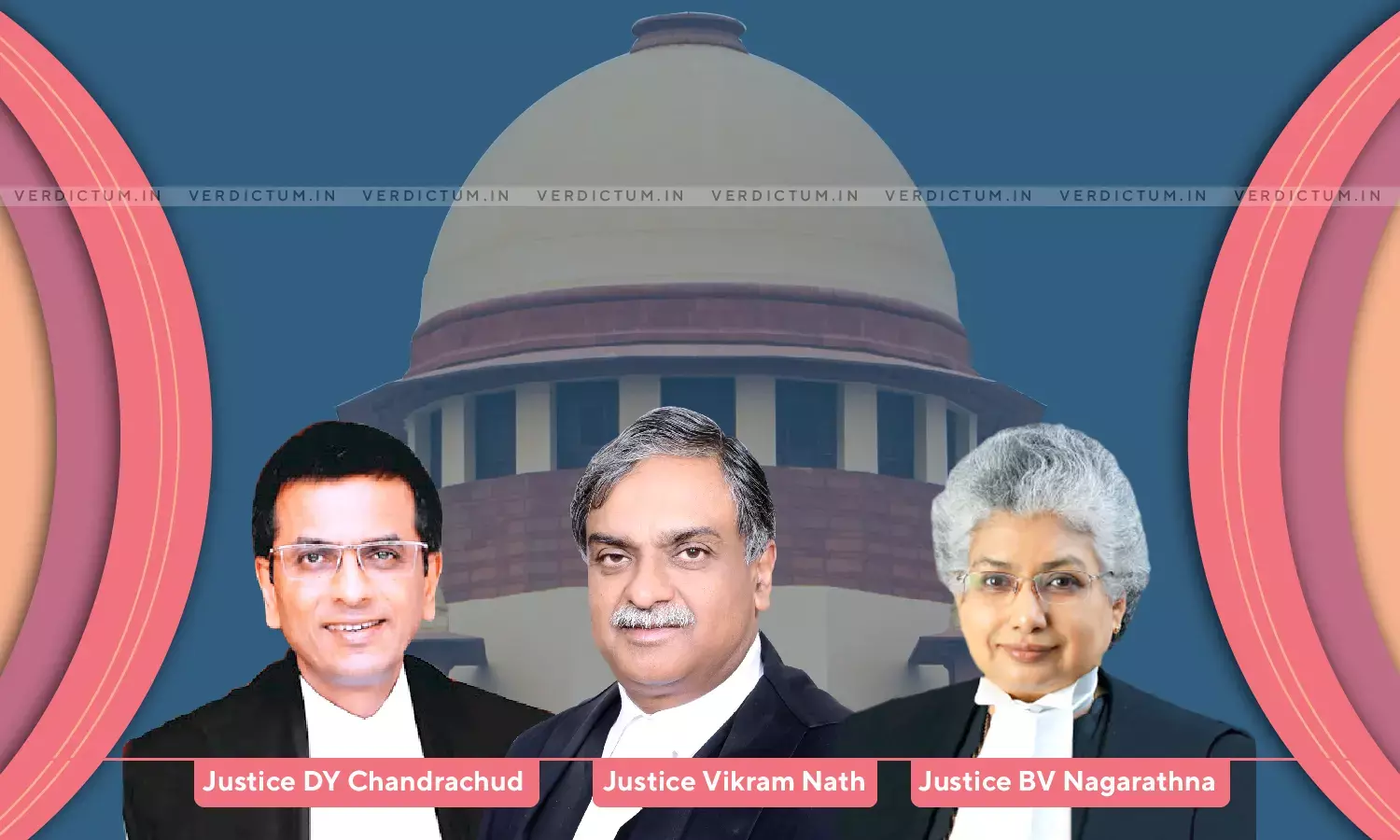Complainant Cannot Pursue Two Parallel Prosecutions For The Same Transaction Under Section 138 Of NI Act: Supreme Court

A Bench of the Supreme Court has held that under Section 138 of the Negotiable Instruments Act, a complainant cannot pursue two parallel prosecutions for the same underlying transaction. Once a settlement agreement has been entered into by the parties, the proceedings in the original complaint cannot be sustained and a fresh cause of action accrues to the complainant in terms of the settlement deed.
The Judgment was by a Bench of Justice DY Chandrachud, Justice Vikram Nath and Justice BV Nagarathna in the case of Gimpex Private Limited Vs Majoj Goel. In this case, the appellant had filed a complaint against the respondent under Section 138 of the NI Act after dishonor of cheques. Then both parties had drawn the settlement and the respondent issued fresh cheques in terms of the settlement, which were also dishonored. Therefore, the appellant filed the second complaint while continuing to prosecute the first set of complaints. On a petition filed by the accused under Section 428 Cr.PC., the High Court quashed the second complaint while permitting the complaint to prosecute the first set of complaints. Therefore, both the accused as well as the complainant approached the Supreme Court.
After hearing the parties, the Bench considered whether parallel proceedings for complaints under Section 138 of the NI Act can be permitted and the also the consequence of the execution of the settlement deed.
The Bench noted that allowing prosecution of both sets of complaints would be contrary to the purpose of the enactment. When the parties have voluntarily entered into the settlement agreement, they can't be allowed to pursue both the complaints once the settlement agreement is not adhered to.
"Once parties have voluntarily entered into such an agreement and agree to abide by the consequences of non-compliance of the settlement agreement, they cannot be allowed to reverse the effects of the agreement by pursuing both the original complaint and the subsequent complaint arising from such non-compliance. The settlement agreement subsumes the original complaint. Non-compliance of the terms of the settlement agreement or dishonour of cheques issued subsequent to it, would then give rise to a fresh cause of action attracting liability under Section 138 of the NI Act and other remedies under civil law and criminal law."
Thus, the Bench noted, "A complainant cannot pursue two parallel prosecutions for the same underlying transaction. Once a settlement agreement has been entered into by the parties, the proceedings in the original complaint cannot be sustained and a fresh cause of action accrues to the complainant under the terms of the settlement deed."
The Bench further observed that pursuing both the complaints would lead to contradictory results, increase the burden on the criminal justice system and discourage settlement matters.
"A contrary interpretation, which allows for the complainant to pursue both the original complaint and the consequences arising out of the settlement agreement, would lead to contradictory results. First, it would allow for the accused to be prosecuted and undergo trial for two different complaints, which in its essence arise out of one underlying legal liability. Second, the accused would then face criminal liability for not just the violation of the original agreement of the transaction which had resulted in issuance of the first set of cheques, but also the cheques issued pursuant to the compromise deed. Third, instead of reducing litigation and ensuring faster recovery of money, it would increase the burden of the criminal justice system where judicial time is being spent on adjudicating an offence which is essentially in the nature of a civil wrong affecting private parties – a problem noted in multiple judgements of this Court cited above. Most importantly, allowing the complainant to pursue parallel proceedings, one resulting from the original complaint and the second emanating from the terms of the settlement would make the settlement and issuance of fresh cheques or any other partial payment made towards the original liability meaningless. Such an interpretation would discourage settlement of matters since they do not have any effect on the status quo, and in fact increase the protracted litigation before the court."
The Bench further clarified, "Once a settlement agreement has been entered into between the parties, the parties are bound by the terms of the agreement and any violation of the same may result in consequential action in civil and criminal law."
The Bench did not accept the submission by the appellant that in the event the second complaint is found to be non-maintainable and the compromise deed is held to be invalid, they would be left remediless and thus, the first trial should be allowed to continue.
"We do not find any merit in this submission. In the event that the compromise deed is found to be void ab initio on account of coercion, the very basis for quashing of the first complaint is removed since the settlement agreement is deemed to have never existed and hence it had no effect on the liability subsisting under the first complaint. The appellants may then approach the competent court for reinstatement of the original complaint and the trial can proceed on that basis."
The Supreme Court, accordingly, quashed the first set of complaints while reversing the judgment of the High Court which had quashed the second complaint.

